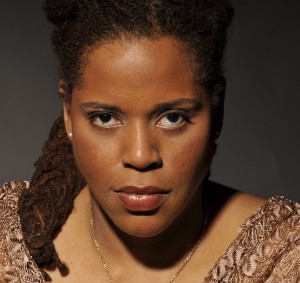PASO hosts author Wendy Coakley-Thompson in study of interracial relationships

One of the many events that the Pan Afrikan Student Organization (PASO) hosts on campus is the Our Story Conference. This year the conference focuses on the topic of interracial dating. Throughout the week leading up to the main event on Saturday, Nov. 7, PASO has hosted activities on campus to promote the conference, such as an interracial dating show on Monday and a faculty and staff panel on Wednesday.
This Saturday, Wendy Coakley-Thompson will speak about her fascination with interracial relationships and why they are such an important topic. Coakley-Thompson is from a diverse West Indian family and was raised in the Bahamas. Her grandmother is biracial, which piqued her interest in interracial relationships.
“In addition to her talk, she will be holding a book discussion and signing of her newest book Back to Life,” Sophomore Kareen Getfield, co-president of PASO, said. Back to Life centers on the relationship of Lisa, an African-American woman, and Marc, a Caucasian man, in the midst of the aftermath of the murder of an African-American man by Italian American youth.
After Coakley-Thompson’s talk, discussion and book signing, there will be workshops hosted by PASO at 2:00 p.m. and 3:00 p.m. The two workshops will be running at both times so that everyone has a chance to attend both of them. One will be an activity on distinguishing between myths and realities of interracial dating, and the other will be a showing of clips from the movie Jungle Fever and a discussion.
The decision on this topic for this year’s conference was made for several reasons. “First of all, PASO as a group has noticed that interracial dating is something that often seems pushed under the rug. We chose the topic because it can be a groundbreaking topic for the Gustavus community as well as the St. Peter community in opening up the discussion of race relations,” Getfield explained.
The topic for the Our Story Conference this year is important because, in addition to the issue of race, it deals with the issue of culture. Cultural differences oftentimes accompany interracial relationships.
“My wife was born in Mexico, but raised in the United States and as a result has dealt with the issue of feeling like she is ‘pocha,’ which is someone who is not fully Mexican because of their affiliation with their new country, almost like a traitor to the race because they lack authenticity. Despite being the white person in the relationship, I don’t have to deal with those identity issues as much. I’ve really learned a lot from her about her culture because of the loyalty that is associate with being Mexican,” Sean Cobb, assistant professor of English who was a part of the panel on Wednesday, said.
Cobb also pointed out that he isn’t the only one in his relationship who has learned about the other’s culture. “There is such a thing as a white culture, even though it oftentimes isn’t thought about, and there are things that my wife has learned about my culture through our marriage as well,” Cobb said.
While interracial relationships are something that aren’t constantly apparent on campus, especially with only 12 percent of Gustavus students being of color and only two percent of Gustavus students being from different countries, the conference helps highlight the possibility of interracial relationships, as well as the importance of diversity in relationships in general.
“Interracial relationships are as important and no less important as any other relationship. In general, people are willing to learn about themselves through the differences they have from those they are in relationships with, especially when they are in love with them,” Sean Easton, a classics professor who was also on Wednesday’s panel, said.
All students who are interested are encouraged to attend both Coakley-Thompson’s keynote address on Saturday morning and the workshops presented by PASO on Saturday afternoon.